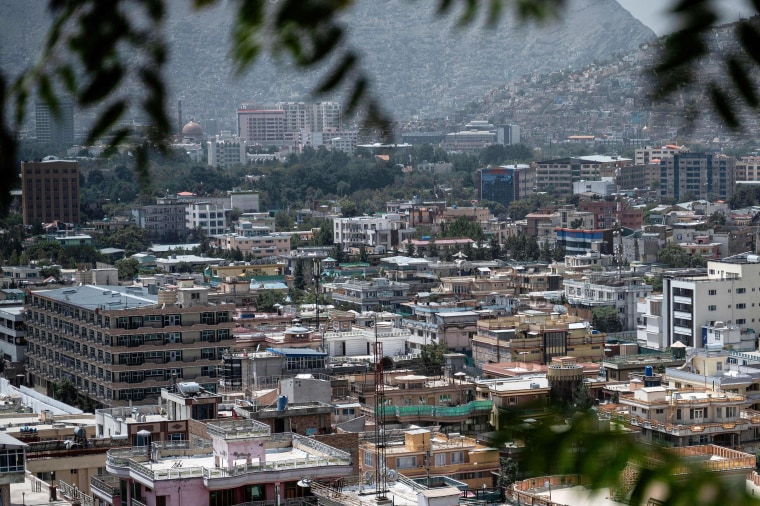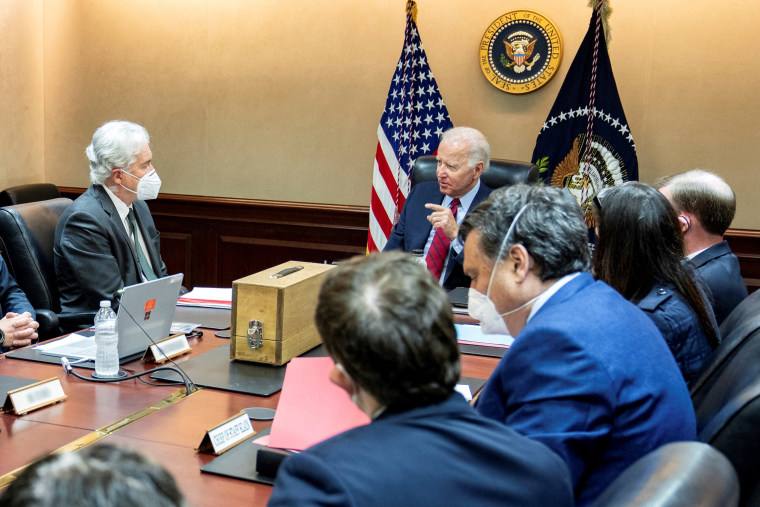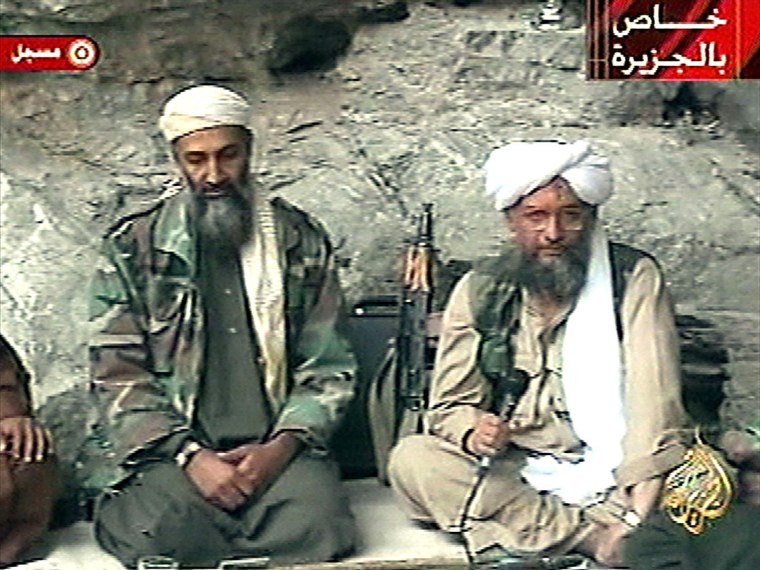The killing of Ayman al-Zawahiri in downtown Kabul was a bitter blow not just to Al Qaeda, but also to the Taliban, whose vow not to harbor dangerous international terrorists has been exposed just short of a year after the militant group returned to power in Afghanistan.
Zawahiri, who went from being a young doctor in Cairo to becoming Al Qaeda leader, Osama Bin Laden’s former deputy and one of the masterminds of the terrorist attacks of Sept. 11, 2001, was killed in a U.S. drone strike over the weekend. He was living with his family in a Taliban-supported safe house in an upscale neighborhood in the Afghan capital at the time of the strike.
Secretary of State Antony Blinken called his presence there a gross violation of a 2020 deal in which the Taliban promised the United States not to allow terror groups to use Afghan soil to threaten the security of America and its allies.
Two decades after a U.S.-led invasion toppled the previous Taliban regime, their sheltering of another Al Qaeda leader will hinder the hard-line Islamic group’s quest for international legitimacy and much-needed aid, while raising new questions about the status of the global war on terror.
Al-Zawahiri, 71, escaped U.S. forces when they invaded Afghanistan in 2001 and his whereabouts were long unknown as he took over as Al Qaeda leader and continued to call for attacks against the U.S. and its allies. According to two senior Taliban leaders, the man who was one of America’s most-wanted fugitives moved to the Afghan capital some five or six months after the U.S. withdrawal from the country.
For some in Afghanistan, sheltering him is proof that the Taliban were never serious about cutting ties to Al Qaeda and jihadist networks.
One doctor in Kabul, who spoke to NBC News on the condition of anonymity out of fear of reprisals, said it raised concerns that his home country will once again be turned into a safe haven for international terrorism. “Afghanistan is always forgotten by the U.S. and the international community — it is in a very tough situation,” he said.
The episode “shows the real face of the Taliban to the world,” a former police officer in Kabul said, also speaking on the condition of anonymity out of fear of reprisals.

“I don’t think anyone in the United States thought they could entirely trust the Taliban and their assurances under the 2020 deal,” said Raffaello Pantucci, a counterterrorism expert and a senior associate fellow at theRoyal United Services Institute think tank in London.
But it’s possible that harboring al-Zawahiri in Kabul was not a centralized decision made by the Taliban leadership, said Fawaz Gerges, a professor of international relations at the London School of Economics who has written extensively about him. Instead, he said, the Al Qaeda-aligned Haqqani network, one of the most powerful factions within the Taliban, could have facilitated his presence in the Afghan capital.
The Taliban did not return NBC News’ requests for comment Tuesday. The militant group’s top command will likely have questions on who made the decision to shelter Al-Zawahiri, Gerges said, that could lead to deepening divisions within. It also leaves them “terrified that Americans eyes and ears are everywhere,” he added.
The strike has shown that the U.S. has strong intelligence assets on the ground, Pantucci said, providing evidence that the Biden administration’s “over the horizon” efforts to combat terror threats without American boots on the ground has been pretty effective.

“For the Taliban, this is a very dangerous moment,” Gerges said. “Not only does it undermine the efforts to be accepted by the international community, but it shows major vulnerability.”
The same could be said for Al Qaeda, which has been sidelined while the Islamic State group emerged as the predominant global terror outfit. ISIS has also posed an increasing threat in Afghanistan over the past year, as feared in the wake of the U.S. withdrawal, with the group’s regional affiliate carrying out a series of deadly attacks against Taliban targets and civilians.
Al-Zawahiri’s killing feels like the end of a chapter, Pantucci said, with Al Qaeda weakened and running out of leaders.
“There are a lot of affiliate groups that could still take up the mantle, but I think the iteration of Al Qaeda that was responsible for the 9/11 attacks has been pretty soundly thrashed at this point,” he said. “But a lot of the problems which created the grievances, which created a space for Al Qaeda to grow in the first place, haven’t gone away. And so a lot of the kindling is still potentially there.”

In the aftermath of the U.S. withdrawal last summer, the Taliban tried to project a reformed image, seeking global recognition in hopes of securing foreign funds to keep Afghanistan’s ravaged economy afloat. But much of the international aid has been withheld as the militant group shows no signs of ending its human rights abuses or closure of most girls’ schools.
Afghanistan remains an international pariah, with millions living in the throes of a “dire” humanitarian crisis, according to a new U.S. report. Up to 6 million people in the country will face “near-famine conditions” later this year, while 92% of the population faces some level of food insecurity, according to the report released Monday night by the U.S. special inspector general for Afghanistan reconstruction.
The Taliban’s harboring of Al-Zawahiri will likely deepen their isolation on the international stage and exacerbate the crisis, Gerges said, hurting the most vulnerable. “The major losers are the Afghan people,” he added.
